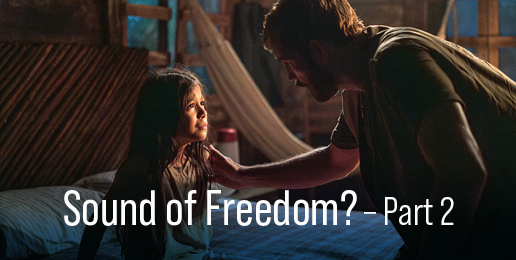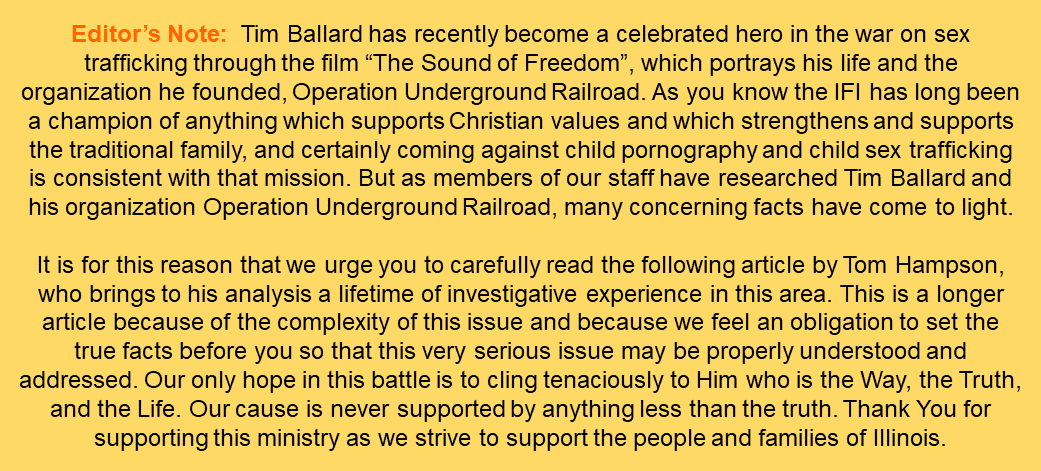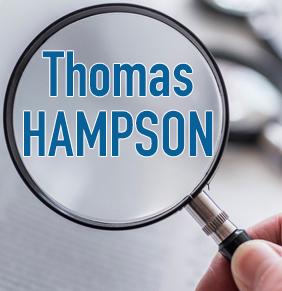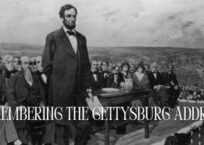

In this post-truth era, reason carries little weight.
Facts have been replaced by feelings. Truth is fluid, variable, malleable.
Some of us, though, remain bound by truth. Booker T. Washington once said:
“A lie doesn’t become truth, wrong doesn’t become right, and evil doesn’t become good, just because it’s accepted by a majority.”
Do you believe that?
Today, many do not. Even our former President has been taken in by the intense emotions generated by the images and story conveyed by the movie Sound of Freedom, despite clear evidence that the story is not true, the nature of the problem totally misrepresented, and the solution offered hopelessly flawed.
President Trump held a special showing of the movie at his Bedminster, New Jersey club, where he praised the film and characterized it as “an incredible inspiration.”
While writing this, the movie has topped $100 million at the box office. It’s no wonder, the film is well made and evokes powerful emotions—compassion for the exploited children, fury for the traffickers.
In my last article, when the film had just brought in $40 million, I documented that the story’s central theme—a boy and his sister kidnapped and sold into sex slavery—is false. Let’s recap.
- There was no intelligence about an American trafficker smuggling children into the US
- Ballard was not waiting for trafficker
- The boy had not been kidnapped except as a legal technicality
- The boy’s sister had not been kidnapped
- The boy did not give Ballard any necklace
- There was no search for the sister as she was at home with her grandmother the whole time
- Homeland Security did not pull the plug on Ballard’s efforts to find the girl because she was never missing
You can find more documentation regarding the falsehood and other misrepresentations by Operation Underground Railroad (OUR) going back several years on the American Crime Journal’s website here. Lynn Packer, a Mormon, like Tim Ballard, created many of the articles and videos on that site.
You also could review the case against the person who supposedly bought “Miguel” in the movie on the pacer.gov website. The case was brought against Earl Venton Buchanan in the Southern District of California, case number 06-cr-01612-H. Look it up. Some of the articles from this case also are posted on the American Crime Journal’s website.
Misrepresentation of the Problem
Understanding how the problem of child sex trafficking is misrepresented in the movie is more complicated than just showing how the story is untrue.
The issue of trafficking is very complex and made more so by the complexities of our extraordinarily diverse world.
Laws, cultures, customs, practices, religions are wildly different in different parts of the world and constantly changing.
Human Trafficking Definition
Human trafficking, as it is commonly understood, involves the sale of modern-day slaves.
But what is a slave? Anne T. Gallagher, a lawyer and international expert on human rights and human trafficking, wrote in a 2017 article in the Journal Anti-Trafficking Review,
“the term seeks to encompass under its expansive umbrella a raft of exploitative practices and a myriad of victims: from the schoolgirls abducted by Boko Haram to the abused maids of diplomatic households in London and Washington; from orphanage tourism in Cambodia to the recruitment of child soldiers by the so-called Islamic State.”
Human trafficking includes a huge set of people; no standard agreement exists on who is enslaved. Laws in different countries vary. In the US, we have a standard that was established by law. The authority for our laws regarding this is the 13th Amendment, adopted after the Civil War. The amendment states:
“Neither slavery nor involuntary servitude, except as a punishment for crime whereof the party shall have been duly convicted, shall exist within the United States or any place subject to their jurisdiction.
Congress shall have power to enforce this article by appropriate legislation.”
Title 22, Chapter 78, Section 7012 of the U.S. Code defines trafficking as:
(11)Severe forms of trafficking in persons
The term “severe forms of trafficking in persons” means—
-
- sex traffickingin which a commercial sex act is induced by force, fraud, or coercion in which the person induced to perform such act has not attained 18 years of age; or
-
- the recruitment, harboring, transportation, provision, or obtaining of a person for labor or services, through the use of force, fraud, or coercion for the purpose of subjection to involuntary servitude, peonage, debt bondage or slavery.
Trafficking Overview
Those who are labor trafficked are a much larger group than those who are sex trafficked, although there are no accurate numbers for either. Since both are illegal, the activity is hidden; thus, it isn’t easy to arrive at reliable estimates.
Nevertheless, we know that children are a relatively small subset of those trafficked for labor or sex. We also know that there are far more adults who are sexually trafficked than there are children.
Of those children who are sexually trafficked, the number who were kidnapped and forced into commercial sexual servitude is minuscule. There are some, for sure, but they are rare.
They are so rare that I have never encountered one in more than 50 years of investigation, either among those I have personally investigated or those I have researched. In most cases, children are groomed into abuse and into commercial sexual situations by boyfriends or by parents, guardians, or caretakers.
In some other countries, this may not be the situation. In impoverished countries, parents sometimes sell their children because the burden of supporting them is too great. Or street children abandoned or orphaned may be scooped up and sold to traffickers.
There may be other scenarios in other third-world countries, too. I have never conducted sex trafficking investigations overseas, but I know, based on my own research, examples of children being kidnapped and sold into sex slavery are uncommon, rare.
Age of Consent as a Driver of Trafficking
The biggest problem globally is the age of consent.
In Nigeria, for example, the age of consent is 11. Only a few years ago, the Philippines increased its age of consent from 12 to 16. Most of the world is 16, including many states in the US, but Brazil, Columbia, Peru, Ecuador, Paraguay are 14. Niger and Burkina Faso are 13. Thailand and Cambodia are 15. Surprisingly, India is 18 and Nepal is 20 as is S. Korea. Bahrain is the only country where the age of consent is 21.
In many Muslim countries, there is no age of consent. Marriage is the age of consent, and in some of these countries, girls as young as nine are given in marriage.
Personally, I think the age of consent should be 21, at least no less than 18. In recent years, though, the effort globally has been to reduce, even eliminate, the age of consent.
Several international organizations, some part of the United Nations, including the International Planned Parenthood Federation, believe the age of consent should be eliminated. The position of these groups is that children have a right to experience sexual pleasure whenever and with whomever they want. It is their sexual right, they say.
There also are global efforts to decriminalize, even legalize, sex work. Currently, most countries that have legalized prostitution require workers to be at least 18. But not all. Hong Kong, it’s 16. So is Cuba.
In China, prostitution is illegal, but the age of consent is 14, and the prostitution laws are not vigorously enforced. Additionally, erotic massages, also called “happy massages,” were declared legal in Foshan, Guangdong Province. Acceptance seems to be spreading.
Besides Cuba, throughout the Americas, the age of consent is 18—Canada, several states in Mexico, Columbia, Ecuador, El Salvador, Nicaragua, Paraguay, Peru and several others. Even in the U.S. state of Nevada prostitution is legal. Legalized prostitution invites exploitation.
One of the reasons that the age of consent is so important is that we know that the vast majority of children who wind up being commercially trafficked were sexually abused first. The abuse could have been by a family member, a family friend, a neighbor, a teacher, a fellow student, by a pastor or priest.
These experiences set children up to become even more vulnerable to further manipulation and exploitation.
This applies to adults who become engaged in the sex trade as well. The longer we can maintain the innocence of children, the more we can create an environment that discourages and prevents pre-teen and teen sex, the more purity is valued by a culture, the less vulnerable children are to being manipulated into the commercial sex trade.
The cultural inhibitors against child sex are disintegrating all over the world. Children are being taught in our schools that they have a right to engage in sex. In some jurisdictions, they are being encouraged to experiment sexually with same and opposite-sex relationships.
We, by our schools our entertainment by our accepted dress by our cultural norms, are teaching children—teaching everyone—that purity is a false value.
Look at the sex ed materials we are allowing in our schools, the library books we are placing in the children’s sections, look at the obscenity we are allowing on the airways and on the internet.
If you think all this has nothing to do with the sex trade, then you need to take another hard look.
Trafficking in the U.S.
The vast majority of children who are sexually trafficked in the United States are children who are runaways. The girls tend to be manipulated by men who groom them into a relationship and then con them into sex work.
One case I worked on was a typical example. A 15-year-old runaway from Chicago was recovered in Portland, Oregon, several months after she disappeared. A local drug dealer in his 30s took her under his wing and let her live in his house, although she had to earn her keep by having sex with the customers he solicited for her.
The drug dealer had taken the Chicago girl and one other runaway into his home, set up a room in the basement decked out with mirrors and erotic images, and put the word out that two young girls were available. He sold drugs and girls out of the house. The runaways just saw themselves as part of the family.
This kind of manipulation into commercial sexual exploitation also can happen to girls who remain in their homes. Their “boyfriends” lure them into the trade with promises for their future, a future that continues to be delayed and never materializes.
Boys, too, can become involved in the sex trade. Some are runaways. Some might remain at home. Boys usually do not have someone else arranging sexual encounters. They rarely have pimps.
When it comes to teens, there are at least as many boys, if not more, as girls in the commercial sex trade. I learned this during investigations I conducted in the 70s; it has remained the same throughout my career, and that finding has been corroborated by a recent study conducted by professors at John Jay College as still being accurate.
Teen boys are the most neglected victims of sexual exploitation.
Child Sexual Abuse Contributes to Trafficking
As I mentioned earlier, these teen victims share something in common. Virtually all of them, before they were drawn into the sex trade, were sexually exploited by a trusted adult—a family member, a friend of the family, a neighbor, a teacher, a religious leader—or by a peer, usually older and more mature.
That experience emotionally set them up to be more vulnerable to further exploitation, made it easier for slick predators to manipulate them to their will, and lowered their internal inhibitions to sexual activity for hire.
If you want to prevent sex trafficking, work to prevent children from being abused in the first place, work to de-sexualize our culture and our schools and stop being fooled by promises of quick fixes made by politicians or slick NGO (Non-Governmental Organization) leaders. There are no quick or easy fixes.
The problem far larger than the commercial sexual exploitation of children is the sexual abuse of children, that is, the sexual exploitation of children for non-commercial purposes. One in four girls and one in six boys are victims of child sexual abuse by an adult or a peer sometime before age 18. That is an enormous number.
Only a tiny fraction of these abused children get drawn into the commercial sex trade. But most of these children never tell anyone about the abuse they experienced, ever.
It is clear that the story of the Sound of Freedom is not true. It also is clear that the film’s representation of the problem mischaracterizes the nature of the commercial sexual exploitation of children. But what difference does it make? Isn’t the movie shedding light on sexual exploitation in general? Isn’t that a good thing?
No.
Sexual Exploitation of Children Should Not Be A Political Issue
For one thing, the movie’s promoters have turned this issue into a political controversy, and millions are being sucked into it. Ballard and others have claimed the movie has been suppressed for five years for political reasons, that a shadowy cabal of politically powerful people has conspired to prevent the film from being aired to keep the public in the dark about the exploitation of our children. Moreover, those criticizing the film are accused of being leftist minions of this cabal.
These are completely bogus and unsupported claims.
The allegations are nonsense and further damage the credibility of the promoters. The movie did not come out due to various reasons (including the Covid pandemic) which had nothing to do with an evil cabal suppressing its release.
Protecting children is not a political issue. Nor should it be, and nobody should try to turn it into one.
These wildly false allegations about the suppression of the movie and smearing anyone that criticizes the movie were ways to bolster interest by manufacturing a phantom enemy and drawing attention away from the genuine problems with the film. Most of the criticisms about the movie and its promotion are valid. Those criticisms involve the story being untrue, the nature of the issue being mischaracterized, and the solution promoted by Tim Ballard and OUR being deeply flawed.
All three of these criticisms have dogged OUR from its founding.
The Deeply Flawed Solution to Combating the Commercial Sexual Exploitation of Children Promoted by Operation Underground Railroad
We have already examined the first two criticisms; let’s look at the flawed solution, namely, soliciting local pimps in third-world countries to supply underage girls for a sex party. Then arranging for the local police to raid the party when the underage girls arrive.
Police have been using a variation of this method for decades, although police, unlike OUR, have to take great care not to trigger entrapment laws that would allow the traffickers to get off scot-free. As far as I know, the first NGO to use this technique was the International Justice Mission beginning around 2000. They, too, were criticized, and rightly so. It is absurd that non-law enforcement agencies get involved as partners in such armed operations.
OUR and other anti-trafficking groups have followed IJM’s lead in setting up these kinds of raids.
Why raids?
Anne Gallagher, the anti-trafficking expert, observed in 2015:
“The simplest explanation is law enforcement complicity in such crimes. Agreeing to cooperate with OUR [or other organizations] is a win-win: local cops get to keep an eye on what’s happening and ensure [the NGOs don’t] stray into their turf; they also gain international kudos for taking on the traffickers.”
She goes on:
“[W]e know that child trafficking is a huge problem in the United States. Why is OUR not operating here? For that matter, why are they not raiding the brothels of Amsterdam or London? The simple reason is that, lacking any legal capacity to undertake such operations, Ballard and his rag-tag team would be arrested on the spot. And any court in any of these jurisdictions would not hesitate to throw out a case that rests on the evidence of an OUR-type raid because of the failure to meet even the most basic standards of supervision and accountability. It’s no surprise that the organization and its fellow travelers limit their activities to countries burdened by dysfunctional criminal justice systems that for their own reasons — or perhaps in response to pressure from the U.S. government — agree to cooperate.”
Live Streaming Raids
Some OUR raids are live-streamed using FaceTime to the people funding the operation back in the United States. A favorable article in Foreign Policy magazine from July 2015 reported on a raid OUR conducted in Mexico:
“Paul, a member of the OUR team who keeps his real identity private to protect his cover, holds up his phone: ‘It was awesome,’ proclaims the disembodied voice from Silicon Valley. An executive at a major technology firm—OUR won’t provide his name—the man on FaceTime had donated the money needed to set up the operation. ‘Let’s fund another,’ he says.
“’This is going to end—and I’m not lying—in the rescue of thousands and thousands,’ Ballard rhapsodizes, still wearing his fake blond mustache. Without it, he’s the epitome of the all-American man: tanned and fit, with bright blue eyes. ‘[The Mexican police] just learned how to do something.’
“After Mario and the girls have been removed from the mansion, the Americans pile into police trucks queued up to take them to Acapulco’s airport. A loaned private plane is waiting on the runway. Ballard and Paul are due at a dinner in León hosted by former Mexican President Vicente Fox, and they’re already running late.”
I have to repeat something here. “[The Mexican police] just learned how to do something,” said Ballard.
What?!
As if the Mexican Federal Police, in 2015, had no clue how to take down traffickers and conduct a raid to arrest low-level pimps.
His arrogance is stratospheric. It’s easy to see why Gallagher concluded her 2015 article on OUR like this:
“Ballard’s operations say much about the man: they are arrogant, unethical and illegal.”
Endangering Novices and the Children to be Rescued
Two years ago, Meg Conley wrote an article for Slate that was critical of a raid Ballard set up in the Dominican Republic six years earlier. Ballard had met Conley’s parents at the Mormon church they all attended. After he learned their daughter was a writer, he called Conley and invited her to go along on the raid. She could write an article about it.
She agreed. The day before the raid, she flew into the DR, was briefed, and, the next day, participated in the operation. Ballard’s team filmed the whole thing, intending to use the footage as part of a documentary that would be made later.
In fact, scenes from the raid were used in the documentary “The Abolitionists” that came out in 2016, produced by Gerald Molen, a Hollywood luminary who had been involved with such films as Rain Man, Schindler’s List, and Jurassic Park. (I wonder why he was not involved in producing the Sound of Freedom?)
The raid went off without any problem, but I have to question the judgment of having a complete novice participate in the raid with no training whatsoever. What if one of the pimps decided he didn’t want to be arrested and pulled out a gun?
This kind of thing is not a game.
When you have a dozen or more heavily armed police trying to effect an arrest of criminals, despicable criminals, criminals who are willing to sexually exploit children, there is no telling what could happen.
Lack of Attention to Aftercare
And what about the child victims who were rescued? There were 26 children, middle to high school age. Ballard had arranged for a local agency to take in the girls. He dropped them off and headed home. According to Conley, the girls had been turned out within a week because the agency could not handle them all.
Mischaracterizing Trafficking Statistics and OUR Results
The problems are not limited to OUR’s raid tactics. There are other issues as well. The Polaris Project criticized OUR for mischaracterizing its trafficking statistics, as did the Las Vegas Metropolitan Police Department Human Trafficking Task Force. Reportedly, Utah’s Internet Crimes Against Children Task Force won’t work with OUR anymore.
Numerous police departments around the country will not accept grants from OUR because the organization is said to have a tendency to claim the PD’s rescues as their own just because OUR gave them a small grant.
This is an organization that is praised for its work?
What To Do
I give Operation Underground Railroad no praise—two thumbs down. Providing that group financial support will not help to combat sex trafficking. Sound of Freedom is an exciting movie, but don’t watch it as a guide for how to fix sex trafficking.
It is fiction.
I encourage people to find other, more worthy charities engaged in legitimate, ethical and effective efforts to protect and rescue children. I also encourage everyone to learn to recognize trafficking victims when you see them as well as what to do if you suspect someone you encounter has been trafficked.
Here is a simple guide provided by the U.S. State Department, Office to Monitor and Combat Human Trafficking.
There are numerous capable organizations around the United States that are engaged in efforts to end child sexual exploitation and abuse. I’m sure there are many wherever you live.
Support them.
What is most important is to learn how to protect your own children, learn how to spot predators, and keep your children away from them.
It’s a good idea to take your children out of public school as well. Either home-school them or find a private Christian school where Biblical values are taught.
Protecting children requires active involvement by all of us. There are no shortcuts and no proxy can do it for us. It also requires work to learn about the issue.
Are you ready and willing to take this on?






















